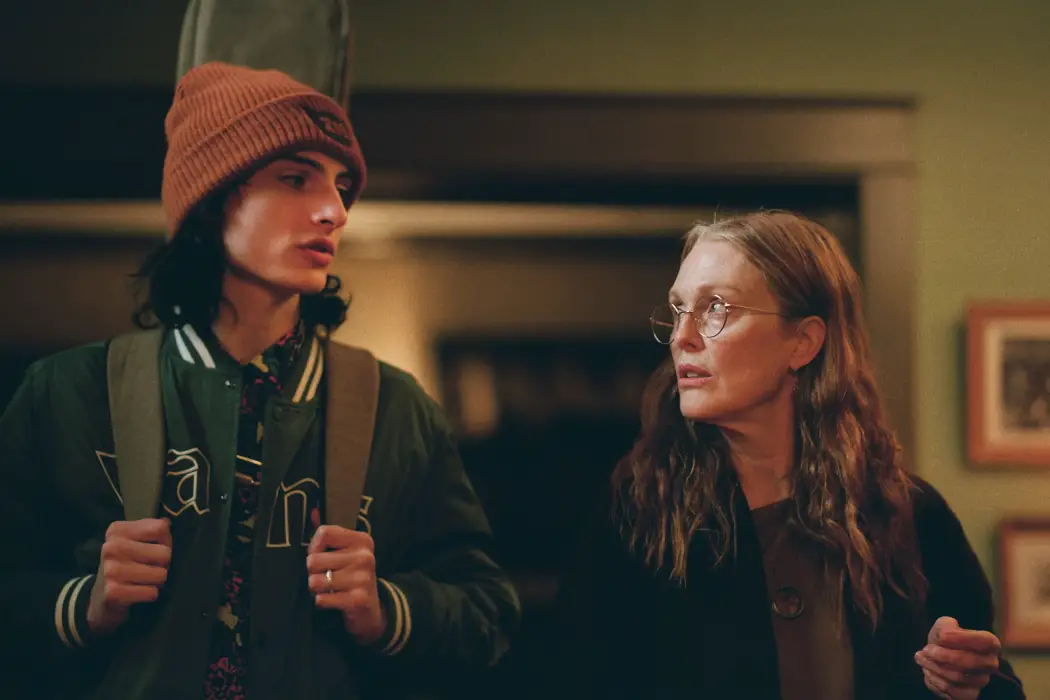Sundance Film Festival 2022: WHEN YOU FINISH SAVING THE WORLD: A Flawed Debut in All the Right Ways

Kevin L. Lee is an Asian-American critic, producer, screenwriter and…
It’s easy to be distracted and have your expectations affected by big celebrity names in an upcoming film. So when we see words that read “Written and directed by Jesse Eisenberg,” the gears turned. They turned the same way when we waited for Jordan Peele to give us Get Out and for Greta Gerwig to give us Lady Bird.
When You Finish Saving the World is not a perfect film. Frankly, it’s a very flawed and frustrating film to watch at times, and the story loses footing more than once. But the one thing Eisenberg never loses from start to finish is his authentic voice. For an artist who has spent over 20 years expressing himself in front of the camera, he allows his sensibilities and sensitivities shine behind the camera here.
Full of difficult characters who make you want to tear your hair out and plenty of classical music to rival its embarrassing situations, Eisenberg’s debut is one that will resonate with some viewers and not at all with several others.
Difficult Characters Meets Quiet Observation
I think it is fair to say that you will feel Eisenberg’s personality immediately through the dialogue between his insufferable characters. Though the premise is a familiar generational gap between mother and son, When You Finish Saving the World essentially tells two stories happening at once, in parallel with one another. Evelyn (Julianne Moore) runs a shelter for survivors of domestic abuse. She takes her job very seriously, following a uniform work ethic without ever being aware of how she oversteps or speaks inconsiderately to other people. And when I say “other people,” I mean her son Ziggy (Finn Wolfhard). Ziggy is the exact opposite of his mother. He writes and performs shallow-but-deep-for-high-schoolers songs on a Twitch-like platform to a “massive” 20,000-follower fan base.

What he does, he thinks has value. What she does, she thinks has value. Of course, the two don’t see that in each other, and the way they express that to one another has to be some of the most frustrating yet realistic dialogue you’ll ever hear. Maybe some of it is played for laughs from Eisenberg’s point of view. Certainly, there are moments where he is clearly calling out on their white privilege and obliviousness to their own behaviors. But it is his strategy with the camera that makes his debut an interesting watch.
We see Evelyn do something ridiculous. We see Ziggy get annoyed and say something mean back. We get frustrated. But the camera watches them and just carries on. There is an undeniable amount of tenderness given to these characters, a sensibility put together by Eisenberg and cinematographer Benjamin Loeb. Certainly, it is this aesthetic that allows us to sit through the unlikeable behaviors.
Mixing Ideas and Messages
Where the film fumbles now and then is how it juggles Evelyn’s story with Ziggy’s and whether or not Eisenberg has something else on his mind during all of it. With the rift between mother and son growing each day, Evelyn eventually places her motherly instincts towards Angie and her son Kyle (Billy Bryk), the newcomers to the shelter. Ziggy, on the other hand, is trying so desperately to impress his insanely political classmates, particularly a girl named Lila (Alisha Boe from Yes, God, Yes).
During all of this, Eisenberg is flirting with a ton of ideas that never quite gel together to form one cohesive statement. On one end, he is certainly calling out on Evelyn’s behavior for overstepping her responsibilities with Kyle, leading to a relationship that we know will not end well. It’s a different take on the white savior narrative that is worth discussing –think The Blind Side except both people are white. On the other end, on Ziggy’s side, we hear a good handful of leftist dialogue. Though the point of the storyline is for us to feel Ziggy’s anxiety to fit in and to be liked, it’s unclear whether Eisenberg is making a satire on how our youngest generation handles politics, whether he is fully agreeing with them, or whether I’m overthinking it and it’s simply social set dressing to our current culture.
In the meantime, Ziggy can’t help but say he has 20,000 followers everywhere he goes and I’m sitting here looking like that GIF of Steve Carell cringing from The Office. But it’s undoubtedly relatable. It forces me to think of all the humiliating things I must’ve said when I was in high school, especially to my crushes at the time.
Most of When You Finish Saving the World is driven by the two plotlines I described. Only occasionally do these two paths collide and we have mother and son yelling at each other at the dinner table or in the car –the conversation in the car might be the best scene in the film. But as a whole, a good portion of the film can feel aimless and unfocused, which brings me to other recent coming-of-age films picked up by A24.
Lady Bird had Saoirse Ronan in the lead role, and even though that film is very much a mother/daughter story, Laurie Metcalf has the supporting role. Eighth Grade had Elsie Fisher in the lead role, and the film never leaves her side. When You Finish Saving the World chose to follow both Moore and Wolfhard, but separately.
When You Finish Saving the World: Flawed But Authentic and Honest
As a film that examines the generational gap between parents and children, When You Finish Saving the World performs admirably well. It meanders through its second act quite a bit, and I wish there were more interactions between Moore and Wolfhard so that sweet tender finale can hit even harder. But both their performances shine through, and the awkwardness and cringe humor is so embarrassingly realistic at times, you’d wonder if this is an autobiographical film taken straight from Eisenberg’s high school years (wink wink).
Though it’s not a film I would say I love, nor would I consider it as an essential viewing, I found much of the film to be a success as a directorial debut. It plays with a lot of ideas, and they are all interesting albeit messing in the telling. In all the right ways, When You Finish Saving the World is what you would expect and hope for from Jesse Eisenberg. His personality and surprising tenderness is felt throughout the film, and I applaud his instincts as a director. I will tell him what I would tell anyone who just made their first film: Congratulations and don’t stop. Go make your next film!
What did you think of When You Finish Saving the World? Let us know in the comments below!
When You Finish Saving the World premiered at the Sundance Film Festival on January 20, 2022. It will eventually be released in theaters in the US by A24 (Release date TBA).
Watch When You Finish Saving the World
Does content like this matter to you?
Become a Member and support film journalism. Unlock access to all of Film Inquiry`s great articles. Join a community of like-minded readers who are passionate about cinema - get access to our private members Network, give back to independent filmmakers, and more.
Kevin L. Lee is an Asian-American critic, producer, screenwriter and director based in New York City. A champion of the creative process, Kevin has consulted, written, and produced several short films from development to principal photography to festival premiere. He has over 10 years of marketing and writing experience in film criticism and journalism, ranging from blockbusters to foreign indie films, and has developed a reputation of being “an omnivore of cinema.” He recently finished his MFA in film producing at Columbia University and is currently working in film and TV development for production companies.












